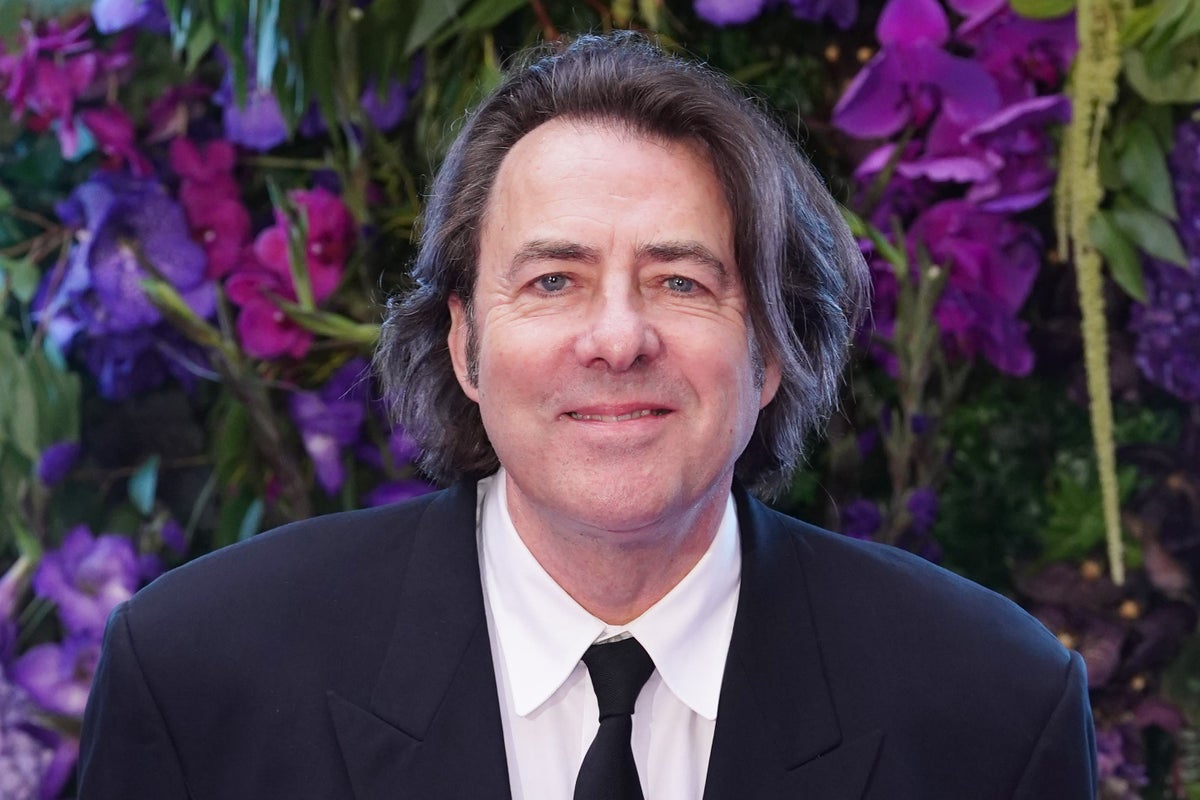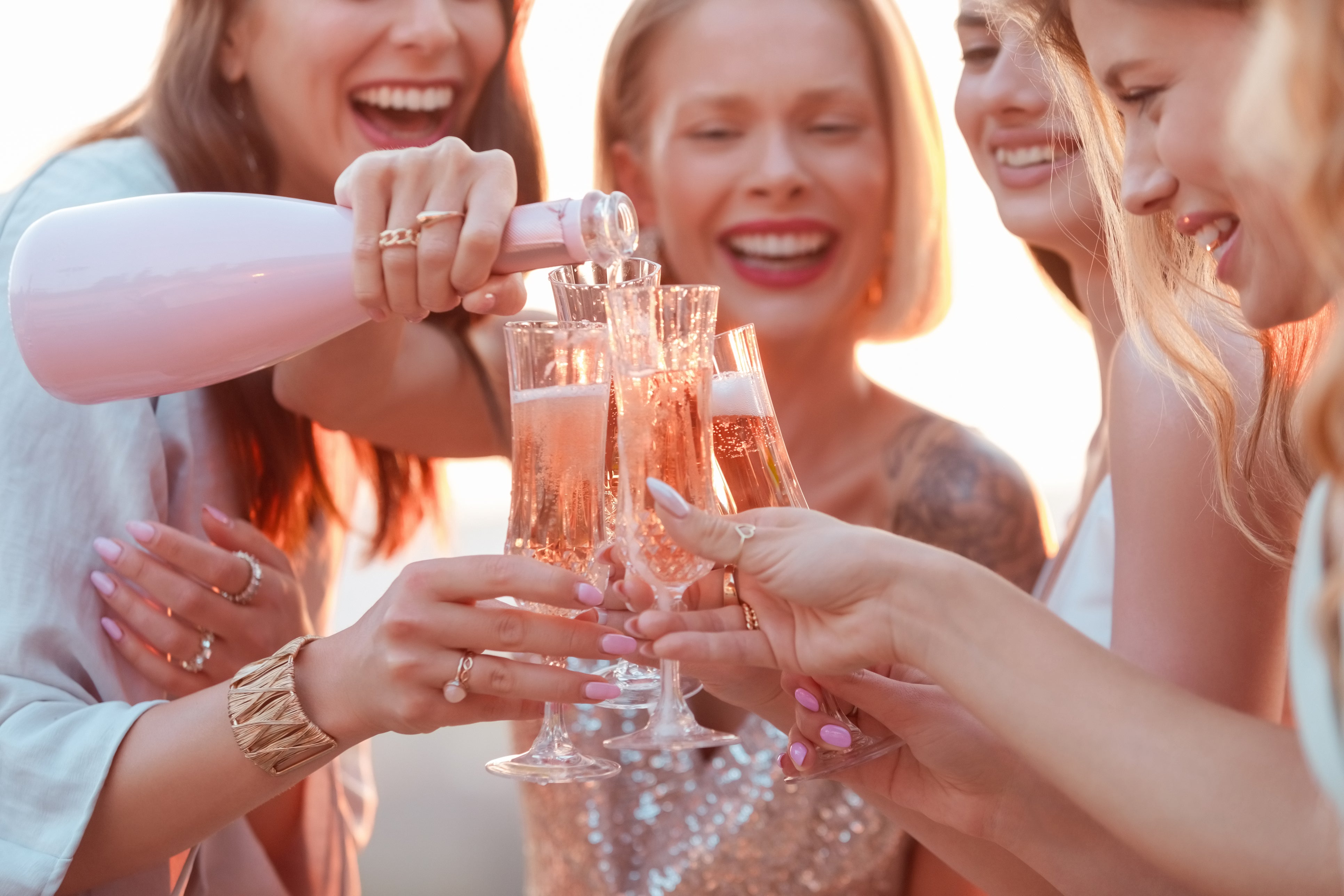
I don’t miss it.” So said Jonathan Ross of booze during his recent appearance on Jessie and Lennie Ware’s Table Manners podcast. “I’m not an alcoholic. So I could drink. If I had a drink now, it wouldn’t mean that tomorrow I’d be thirsting for alcohol again, but I just choose not to … Life is easier without it.”
Upon hearing these words, I was hit by a sharp pang of sadness. Not because I was disappointed in Ross for turning his back on the good times – quite the opposite. For the first time ever, I could relate.
The comedian’s boozy origin story sounded all too familiar – “I drank very, very, very successfully, for many years. I was a good drinker” – and, more troublingly, so did the reasoning behind his decision to quit the sauce.
There was no dramatic backstory, no Damascene moment. As the 64-year-old chat show host went on to explain that he’s found himself “getting tired” more easily and that the appeal of not having “a hangover to deal with” has grown with age, I felt compelled to nod along like the annoying Churchill dog. “It’s true!” came the unwanted, traitorous thought. “I am more tired these days!”
It was a sobering moment in more ways than one. As pathetic as it sounds, my relationship with alcohol is one of the longest and most enduring of my life. For anyone who grew up in Nineties and Noughties Britain, binge drinking was something of a prerequisite; I got my first taste from around the age of 13, albeit via those radioactive-coloured alcopops that were more sugar than liquor.
Like many millennials, university is where I really found my drinking stomach. Nights were spent mixing “Vodkat” and lemonade (they weren’t legally allowed to call it vodka for reasons best not dwelled upon) in halls, downing hideous pints of snakebite at the student union, and shotting sickly sambucas that helped transform the sticky carpeted clubs we frequented into wonderlands of hedonism.
My twenties were marginally less wild, typified instead by perpetual skintness born of the recession and navigating the bewildering world of adulthood with neither compass nor the proverbial pot to piss in. But come the following decade, Big Nights Out were back on the menu. I got out of a long-term relationship and rediscovered my love of up-till-dawn raving; I moved to the seaside and stumbled upon a whole new posse of fabulous lost souls with whom to chug afternoon rosé, do midnight rounds of tequilas, and slide off stools at bottomless brunch after double-digit mimosas. It was like going back in time and being a teen all over again.

And it was so fun. To drain the night dry, vampire-style. To press pause on the crushing heaviness of adult life, the… grown-up-ness of it all.
But lately, things shifted again – so gently, in fact, that I barely noticed it was happening. It started with mornings. Waking up at 6.30am in the hazy light, zinging with energy at the prospect of a new day with nary a jot of grogginess or nausea in sight – well, it felt kind of wonderful. Better, even, than the first crisp sip of wine on a sunny afternoon… The one that would inevitably lead to a second sip, a second glass, a second bottle.
Then there was the yoga. (Of course there was yoga.) Rising, refreshed and raring to go felt even better when combined with an early vinyasa flow class on the beach. (I know, I know. I’m cringing even as I write.)
In the blink of an eye, I was arranging social activities around my desire to bag a cool nine hours’ kip and earnestly saying things like, “You’ve got to try this kombucha, it’s amazing!”. What was happening to me? What had I become???
In truth, I’m still in mourning for the committed booze-hound and party girl I once was
But full identity crisis or not, the truth was impossible to deny. I liked the way that not drinking meant my brain fizzed with ideas rather than plodding along, dragging my flabby thoughts behind it. I liked the way that not drinking meant I could throw myself around with the pep of a 25-year-old at Zumba class, rather than clutching the wall and pausing to swallow down the post-gin bile. Most of all, I liked – no, loved – the way that not drinking meant I could come to, minus the merest hint of hangxiety. No rush of panic while I tried to remember what I’d said and to whom. No spike of cortisol when my battered brain threw up a memory of me ranting at some poor cornered acquaintance, overly loud, overly slurry, overly strident.
It was such a nice feeling, in fact, that it was usually enough to counteract the one downside of abstinence identified by Ross. “You don’t really want to hang out with people as much as you used to,” he mused. “When you go to a pub and everyone’s sitting around drinking, they get a drink, then they get another drink... once you’ve had two Diet Cokes, you really want to go home.”
In truth, I’m still in mourning for the committed booze-hound and party girl I once was: wrestling with this newfound wellbeing drive, bending and breaking every few weeks as I cave to the reckless rush that comes from riding a wave of cremante bubbles into the night. But, though it’s depressing as hell to admit, the comedown increasingly isn’t worth the high for me.
Jonathan Ross might just be onto something. If alcohol is one of the longest relationships of my life, perhaps it’s finally time we started seeing other people.







